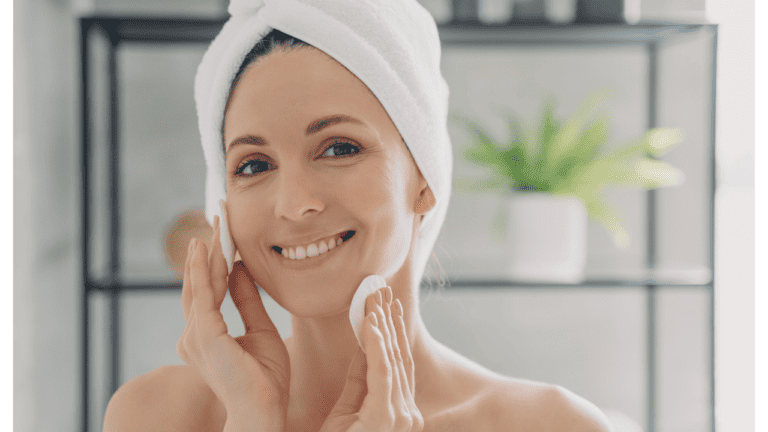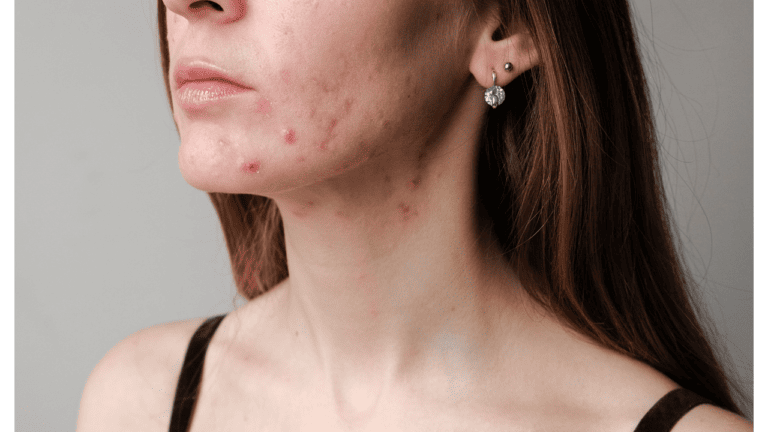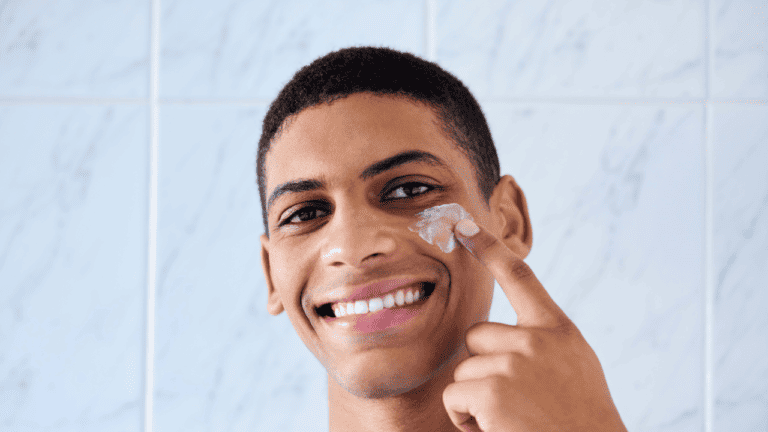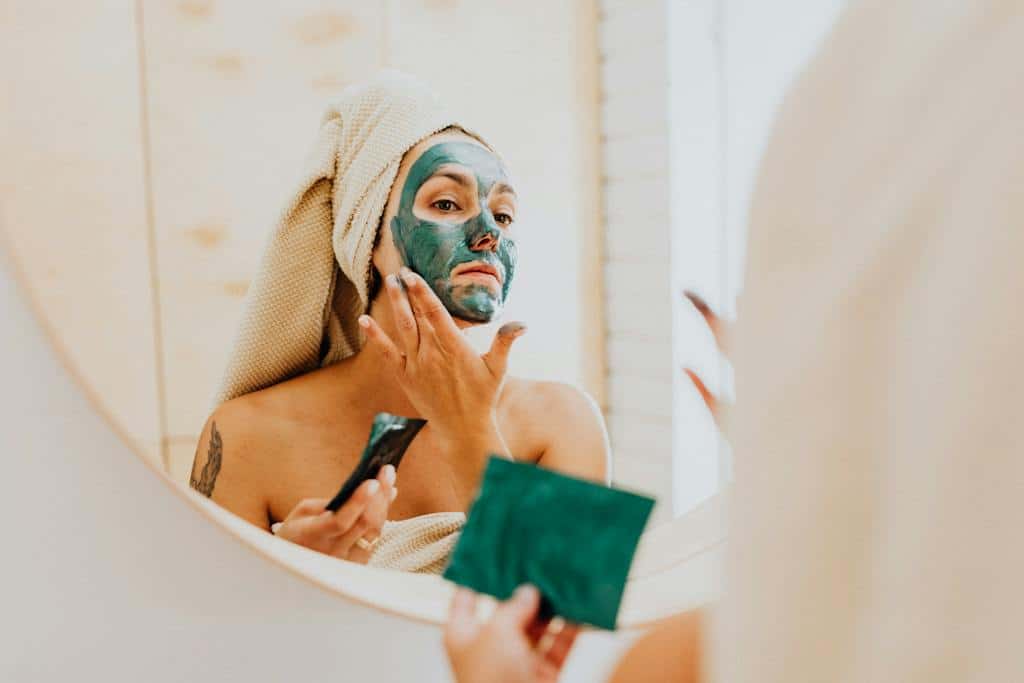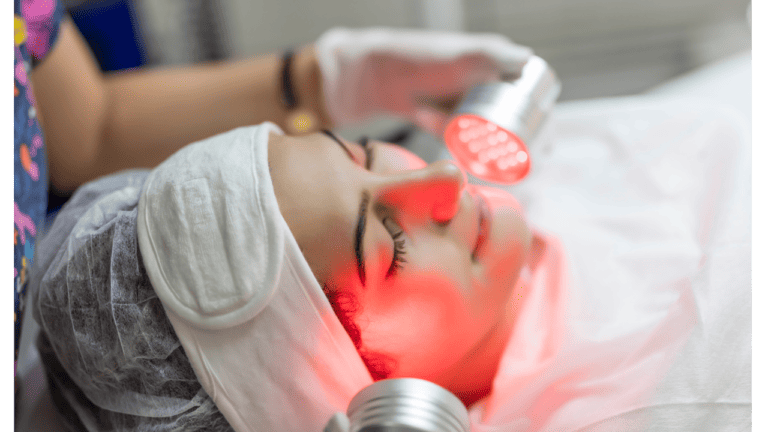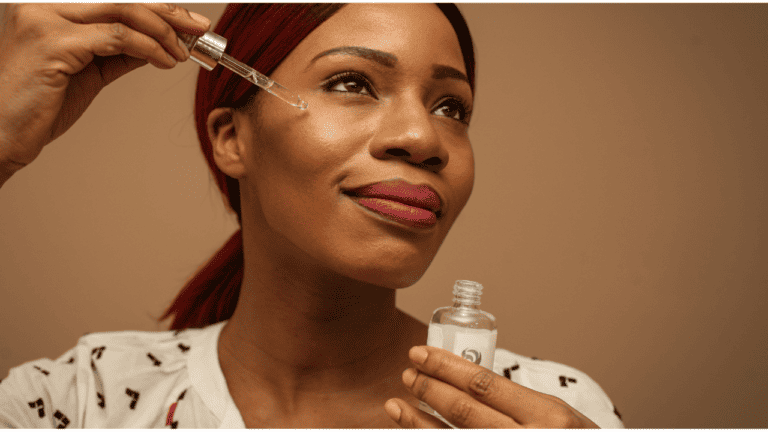Acne is a common skin condition that affects millions of people worldwide. Despite its prevalence, there are several myths surrounding the causes, treatment, and prevention of acne. These myths can lead to ineffective or harmful practices that worsen the condition. I remember growing up with acne and getting different advice from my grandparents versus my parents, one would say, you need to wash your face more often, the other would say, don’t overwash. Needless to say, I was confused, and you might be too, so it is essential to debunk these myths and educate people on evidence-based practices to manage their acne.
Research has shown that many of the common beliefs about acne are not supported by scientific evidence. For instance, many people believe in exfoliating a lot to help the skin renew, however using harsh scrubs or over-washing the face can irritate the skin and worsen acne. Understanding the facts about acne can help people make informed decisions about their skincare routine and avoid practices that do more harm than good.
In this article, we will debunk seven common myths about acne that you must stop believing now. We will provide evidence-based information to help you understand the causes, treatment, and prevention of acne. By the end of this article, you will have a better understanding of how to manage your acne and avoid practices that can worsen the condition.
Key Takeaways:
- There is no evidence to support the idea that tanning or sun exposure can clear up acne.
- While diet may play a role in acne development, there is no one-size-fits-all approach to dietary changes that can cure acne.
- Acne is not caused by poor hygiene or dirty skin, and over-cleansing can actually make acne worse.
- Moisturizing is an important step in acne treatment, as dehydrated skin can produce more pore-clogging sebum.
- Acne is a medical condition that can be treated with a variety of prescription and over-the-counter medications.
Myth 1: Diet Has No Effect on Acne
For many years, dermatologists believed that diet had no effect on acne. However, recent scientific studies have shown that diet can indeed affect acne, especially in adults. One study published in the Journal of the Academy of Nutrition and Dietetics found that a high glycemic load diet, which includes foods like white bread, pasta, and sugary drinks, can increase the severity of acne in young adults.
In addition, another study published in the Journal of the American Academy of Dermatology found that a diet high in dairy products, especially skim milk, can increase the risk of developing acne in both teenagers and young adults. This is because milk contains hormones that can stimulate oil production in the skin, leading to clogged pores and acne breakouts.
While more research is needed to fully understand the relationship between diet and acne, it is clear that what we eat can have an impact on our skin. If you are struggling with acne, it may be worth considering making some dietary changes to see if it improves your skin.
Myth 2: Acne is Caused by Poor Hygiene
One of the most common myths about acne is that it is caused by poor hygiene. However, this is far from the truth. While poor hygiene can exacerbate acne, it is not the root cause of the condition. In fact, over-washing or scrubbing the skin too harshly can actually make acne worse.
Acne is caused by a variety of factors, including hormonal imbalances, genetics, and inflammation. When hair follicles become clogged with dead skin cells and oil, bacteria can thrive and cause inflammation, leading to the formation of pimples, blackheads, and whiteheads. If you’re a woman, you are naturally predisposed to hormonal fluctuations and we often get pimples closer to our periods because our estrogen and progesterone levels drop which increases the production of sebum.
A study published in the Journal of the American Academy of Dermatology found that acne is not associated with poor hygiene, but rather with increased sebum production and inflammation. Another study published in the Journal of Investigative Dermatology found that acne is linked to the overgrowth of a bacterium called Propionibacterium acnes, which normally lives on the skin and is not harmful in small numbers.
While keeping the skin clean is important, it is not the sole solution to preventing or treating acne. Using gentle cleansers and avoiding harsh scrubs or exfoliants can help to keep the skin clean without causing irritation or inflammation.
Overall, it is important to understand that acne is a complex condition with many underlying causes. Poor hygiene is not the main culprit, and over-washing or scrubbing the skin can actually make acne worse. Instead, focus on using gentle skincare products and addressing any underlying hormonal or inflammatory issues with the help of a dermatologist.
Myth 3: Sun Exposure Helps Clear Acne
Many people believe that sun exposure can help clear acne, this likely stems from their belief that acne is caused by bacteria and that the sun can kill bacteria. However, this is a common myth that has been debunked by scientific research. In fact, sun exposure can actually make acne worse and cause other skin problems.
One study published in the Journal of The European Academy of Dermatology and Venerology found that exposure to ultraviolet (UV) radiation from the sun can increase inflammation in the skin and worsen acne. Another study published in the Journal of the American Academy of Dermatology found that sun exposure can cause hyperpigmentation, which can make acne scars more noticeable.
Furthermore, sun exposure can also increase the risk of skin cancer. According to the American Academy of Dermatology, exposure to UV radiation is the most preventable risk factor for skin cancer. It is important to protect your skin from the sun’s harmful rays by wearing sunscreen with a sun protection factor (SPF) of at least 30 and avoiding prolonged exposure to the sun. If you have acne-prone skin, look for a non-comedogenic sunscreen that won’t clog pores and make acne worse.
In conclusion, sun exposure is not a reliable or safe way to clear acne. Instead, it is important to follow a proper skincare routine and seek professional help from a dermatologist if needed. Protecting your skin from the sun is also crucial for maintaining healthy skin and reducing the risk of skin cancer.
Myth 4: Only Teenagers Get Acne
One of the most common myths about acne is that it only affects teenagers. However, research has shown that acne can affect people of all ages, including adults.
According to a study published in the Journal of the American Academy of Dermatology, about 54% of women and 40% of men over the age of 25 experience facial acne. Another study published in the Journal of Clinical and Aesthetic Dermatology found that acne affects up to 15% of women over the age of 50.
While acne is more commonly associated with puberty, it can be triggered by a variety of factors, including hormonal changes, stress, genetics, and certain medications. In fact, some women may experience acne flare-ups during pregnancy or menopause due to hormonal fluctuations.
It is important to note that adult acne may differ from teenage acne in terms of location and severity. For example, adult acne is more likely to appear on the lower face, neck, and chin, while teenage acne typically affects the forehead, nose, and cheeks.
Additionally, adult acne may be more resistant to treatment and may require a different approach. Overall, it is important to recognize that acne can affect people of all ages and to seek appropriate treatment from a dermatologist if necessary.
Myth 5: Acne is Contagious
One of the most common misconceptions about acne is that it is contagious. However, this is simply not true. Acne is not caused by bacteria or viruses that can be spread from person to person. Rather, it is caused by a combination of factors, including hormones, genetics, and lifestyle habits.
While acne is not contagious, it is true that genetics can play a role in whether or not a person develops acne. If your parents or other family members have a history of acne, you may be more likely to develop it as well.
It is important to note that while acne is not contagious, it is still important to practice good hygiene habits to help prevent breakouts. This includes washing your face twice a day with a gentle cleanser, avoiding touching your face with your hands, and keeping your hair clean and away from your face. I believe that people might have decided it is contagious simply because people who live together or spend a lot of time together often eat the same things, and are just as active as each other, meaning they have a similar lifestyle which could contribute to having more or less acne.
Additionally, it is important to maintain a healthy lifestyle to help prevent acne. This includes eating a balanced diet, getting regular exercise, and managing stress levels. Overall, while it is a common belief that acne is contagious, this is simply not true. Rather, it is caused by a combination of factors and can be managed through good hygiene habits and a healthy lifestyle.
Myth 6: Popping Pimples is a Good Idea
One of the most common acne myths is that popping pimples is a good idea to get rid of them. However, this is far from the truth. Popping pimples can actually make acne worse and cause long-term damage to your skin.
When you squeeze or pop a pimple, you are pushing bacteria and oil deeper into your skin, which can cause more inflammation and lead to more pimples. Additionally, popping pimples can cause scarring and hyperpigmentation, which can be difficult to treat. According to a study published in the Journal of the American Academy of Dermatology, popping pimples can also cause the spread of acne-causing bacteria, leading to more breakouts.
The study found that when participants squeezed a pimple, the bacteria on their fingers spread to other parts of their face, causing new pimples to form. Instead of popping pimples, it’s best to leave them alone and let them heal naturally. You can also use over-the-counter acne treatments or see a dermatologist for more severe cases. By avoiding the urge to pop pimples, you can prevent further damage to your skin and promote a clearer complexion.
Myth 7: Toothpaste Can Cure Acne
One of the most common acne myths is that toothpaste can cure acne. This myth has been around for a long time and has been perpetuated by many people. The idea is that toothpaste can dry out pimples and reduce inflammation, making them less noticeable.
However, this is not true, and in fact, using toothpaste on your skin can actually make acne worse. According to a study published in the Journal of Clinical and Aesthetic Dermatology, toothpaste contains ingredients that can irritate the skin and cause redness and inflammation. These ingredients include baking soda, hydrogen peroxide, and alcohol, which can dry out the skin and strip it of its natural oils. This can lead to even more acne and can also cause skin irritation and sensitivity.
It is important to note that toothpaste is not formulated for use on the skin and is not tested for its safety or effectiveness in treating acne. Instead, there are many other proven acne treatments that are much more effective and safer to use. These include topical treatments like benzoyl peroxide and salicylic acid, as well as oral medications like antibiotics and isotretinoin.
In conclusion, using toothpaste to cure acne is a myth that should be put to rest. Instead, it is important to seek out proven acne treatments that are safe and effective. If you are struggling with acne, it is always best to consult with a dermatologist who can help you find the right treatment plan for your skin.
Conclusion
Acne is a common skin condition that affects millions of people worldwide. Unfortunately, there are many myths surrounding acne that can lead to confusion and frustration for those seeking effective treatment. In this article, we have debunked seven of the most common acne myths using scientific evidence and expert opinions.
It is important to remember that everyone’s skin is unique, and what works for one person may not work for another. However, by avoiding these common acne myths and following evidence-based skincare practices, you can improve the health and appearance of your skin.
If you are struggling with acne, it is important to seek the advice of a dermatologist or other healthcare professional. They can help you develop a personalized treatment plan that addresses your specific needs and concerns.
By staying informed and avoiding these common acne myths, you can take control of your skin health and achieve the clear, healthy complexion you deserve.

